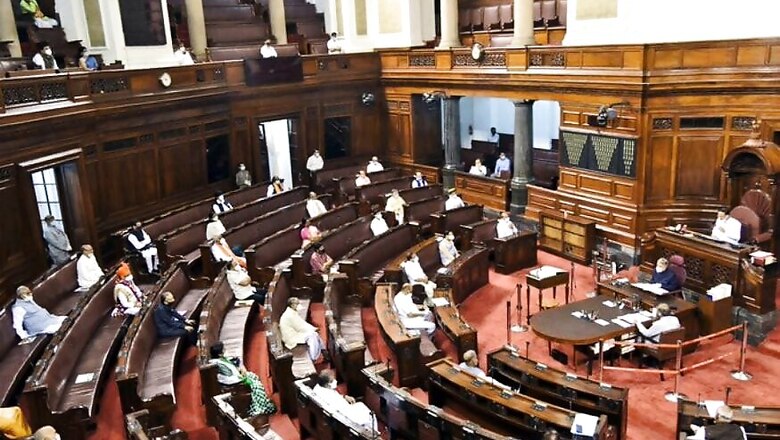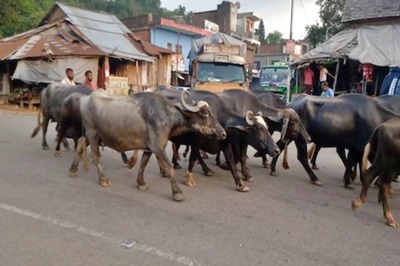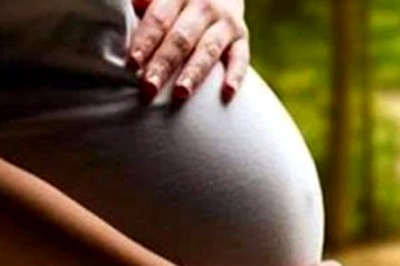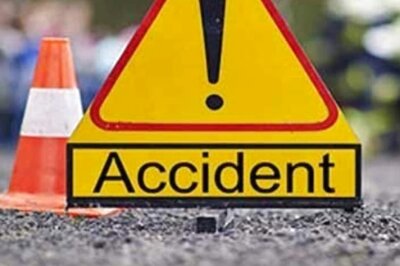
views
Kolkata: On May 13, 1952, the Rajya Sabha met for the first time. And till May 26, 1952, there was no Question Hour in the Upper House for paying more attention to other ‘important businesses’.
Then, the decision to suspend the Question Hour drew severe criticism and one of the members on May 19, 1952, (while addressing the chairman of the House) had said, “It appears that under powers conferred on him under Article 118(2) of the Constitution, the chairman has modified the practice obtained in the old Council of State relating to asking of questions by members to the disadvantage of the rights of such members.”
The next day, on May 20, 1952, the chairman informed the House that Question Hour would be allowed from May 27-28. Then, three starred questions and 12 unstarred questions were listed for May 27, 1952, and three starred questions and 45 unstarred questions were listed for May 28, 1952. The controversy came to an end and the first question was asked by then Rajya Sabha member SV Krishnamoorthy Rao on May 27, 1952. He later became the first deputy chairman of the Rajya Sabha on May 31, 1952.
Once again, after a few more suspensions of the Question Hour in the past, the controversy is back in the ‘Legislature of the Union’. There won’t be any Question Hour in the monsoon session which detractors say will “deprive the opposition leaders and any members to hold the Centre accountable for its work/actions/decisions taken”.
A notification in this regard was issued and as per the directives the monsoon session of Parliament, for both the Lok Sabha and the Rajya Sabha, will start from September 14, 2020, and it will continue till October 1 with a total 18 sittings.
Trinamool Congress MP Derek O’ Brien has expressed concern over the decision while Congress MP Shashi Tharoor sees this move as an attempt to reduce Parliament to a rubber stamp.
“During the 33rd (1961), 93rd (1975), 98th (1976) 99th (1977) Sessions there was no Question Hour as these sessions were summoned for SPECIAL PURPOSES: Orissa, Proclamation of Emergency, 44th Amendment, President’s Rule TN/Nagaland. The upcoming Monsoon Session is a regular session. MPs are required to submit Qs for Question Hour in Parliament 15 days in advance. Session starts 14 Sept. So Q Hour cancelled? Oppn MPs lose right to Q govt. A first since 1950? Parliament overall working hours remain same so why cancel Q Hour? Pandemic excuse to murder democracy,” Derek tweeted.
The TMC parliamentarian’s concern was backed by Tharoor, who tweeted, “I said four months ago that strongmen leaders would use the excuse of the pandemic to stifle democracy & dissent. The notification for the delayed Parliament session blandly announces there will be no Question Hour. How can this be justified in the name of keeping us safe?”
While the leaders are outraged over the decision, political expert Kapil Thakur explained the importance of Question Hour in Parliament.
“It is the most important session of Parliament to catch the government on various decisions taken against the interest of the people. It is the session (in the first hour of sitting) to hold the union government accountable for its actions. Primarily there are three types of questions which are ‘starred questions’, ‘unstarred questions’, and ‘short-notice questions’,” he said.
“The ‘starred questions’ must be submitted 15 days in advance by the parliamentarian and only 20 questions are selected for oral answers on a day by the minister-in-charge related to the questions. Based on the Speaker’s discretion, an MP can ask two supplementary questions. The second one is ‘unstarred questions’. These are those questions which get direct replies from the respective ministries. The questions should be submitted 15 days in advance and nearly 230 of them go to the minister for explanation per day during the session. The third one is a ‘short- notice question’, which is related to urgent public matters. An MP can request a short-notice question by giving intimation within 10 days. All questions under this category are answered orally followed by supplementary questions. Acceptance of short notice questions is at the discretion of the Speaker.”
Besides, there is one more category, and that is ‘questions to private members’, Thakur said. “In this case, questions will be asked to members who are not ministers. These questions are related to parliamentary committees, private member bills and resolutions,” he added.
In the past, there were many instances when Question Hour sessions were not held.
For example, In 1961, 1975, 1976 and in 1977, Question Hour sessions were suspended for special businesses like Orissa Budget, approval of Proclamation of Emergency, Constitution (Forty-fourth Amendment) Bill, 1976 and approval of President’s Rule in Tamil Nadu and Nagaland, respectively.
On July 21, 1975 (the 93rd session), the minister of state in the department of parliamentary affairs moved a motion, which read, “That this House resolves that the current session of the upper house being in the nature of an emergent session to transact certain urgent and important Government business, only Government business be transacted during the session and no other business whatsoever and all relevant rules on the subject do hereby stand suspended to that extent.”
The move angered the parliamentarians and the chairman intervened and he said, “…regarding allowing the Question Hour or not allowing the Question Hour, it is a point to be decided by me…rule 38 is very clear on this point…on my own considering the importance of the present situation, I have decided not to have the Question Hour. It is within the authority of the Chairman. He has used it independently of the Government or anybody else. Nobody can question it.”
On November 26, 1962, during the 41st session of Parliament, the parliamentary affairs minister held a meeting with the opposition leaders and then it was unanimously (those present at the meeting) decided to dispense with the Question Hour.
During the 78th session, the House decided not to hold the Question Hour with effect from December 6, 1971 during the remaining part of the session due to war with Pakistan.
Before that, on March 18, 1954, Question Hour was dispensed with for consideration and passing of the Press (Objectionable Matter) Amendment Bill, 1953.
During the 201st session, summons for the session was released at a short notice and Question Hour was suspended.
Similarly, due to a terrorist attack in Parliament on December 13, 2001, during the 194th session (November 19, 2001 to December 19, 2001), the chairman decided to dispense with the Question Hour on December 18 and 19, 2001.
No Question Hour was fixed for the first few days of the commencement of the 75th, 100th, 101st and 112th sessions of Parliament due to short or inadequate notices.
Speaking to News18.com, Trinamool Congress MP Sukhendu Sekhar Roy said, “I am personally not attending the monsoon session because of the Covid-19 pandemic.”
In the context of suspending the Question Hour session, he said, “Not only Question Hour but also the Zero Hour session was suspended. There is no time for such sessions because the timing has been reduced from normal seven hours (roughly) to three hours. There is no scope. Besides all, I believe that the government should have called a meeting with the leaders of the House before taking the final decision on suspending the Question Hour. All the elected representatives should have been consulted. There are other ways to raise questions like calling attention, short-notice questions but that requires the Speaker’s discretion.”




















Comments
0 comment